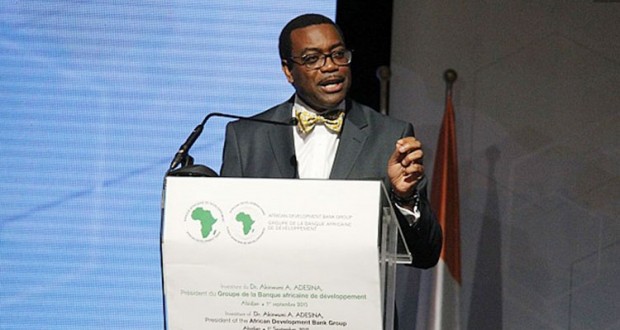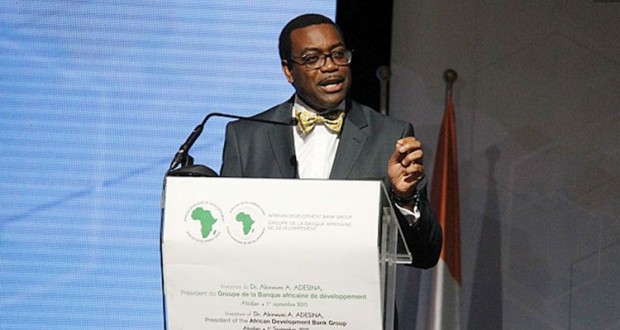
AfDB and Millennium Challenge Corporation sign MOU on future collaboration
Lusaka, Zambia, May 25, 2016 – The President of the African Development Bank (AfDB), Akinwumi Adesina, and the Deputy Chief Executive Officer of the Millennium Challenge Corporation (MCC), Nancy Lee, signed a Memorandum of Understanding on future collaboration on the sidelines of the AfDB’s Annual Meetings in Lusaka, Zambia.
Speaking on the occasion, President Adesina said he was excited to work with the corporation because the sectors they focus on and the work-to-scale approach based on good analytics fits well with AfDB’s High 5 priorities and its emerging business culture.
Adesina suggested that both sides get together and quickly focus on three major areas – regional integration that would require investing in infrastructure across borders, energy with a focus on value addition to the huge renewable resources in Africa, and tapping the capital markets for private-sector investment.
I would be more delighted with our teams getting together so that we can begin work as fast as possible,” he said.
Speaking earlier, Lee said the MOU builds on existing collaboration between the two institutions way back in October 2010. Both have successfully worked on a number of projects including water and sanitation in Zambia.
Lee said it was time to move to the next level focusing on three areas to achieve scale and impact. These are: developing the best projects for economic growth and poverty reduction, regional integration and mobilizing private sector.
“Cooperation involves sharing data and analysis essential to informing resource allocation and engaging the private sector,” she added.
Speaking on the occasion, President Adesina said he was excited to work with the corporation because the sectors they focus on and the work-to-scale approach based on good analytics fits well with AfDB’s High 5 priorities and its emerging business culture.
Adesina suggested that both sides get together and quickly focus on three major areas – regional integration that would require investing in infrastructure across borders, energy with a focus on value addition to the huge renewable resources in Africa, and tapping the capital markets for private-sector investment.
I would be more delighted with our teams getting together so that we can begin work as fast as possible,” he said.
Speaking earlier, Lee said the MOU builds on existing collaboration between the two institutions way back in October 2010. Both have successfully worked on a number of projects including water and sanitation in Zambia.
Lee said it was time to move to the next level focusing on three areas to achieve scale and impact. These are: developing the best projects for economic growth and poverty reduction, regional integration and mobilizing private sector.
“Cooperation involves sharing data and analysis essential to informing resource allocation and engaging the private sector,” she added.
 Menu
Menu
 AfDB and Millennium Challenge Corporation sign MOU on future collaboration
AfDB and Millennium Challenge Corporation sign MOU on future collaboration
















